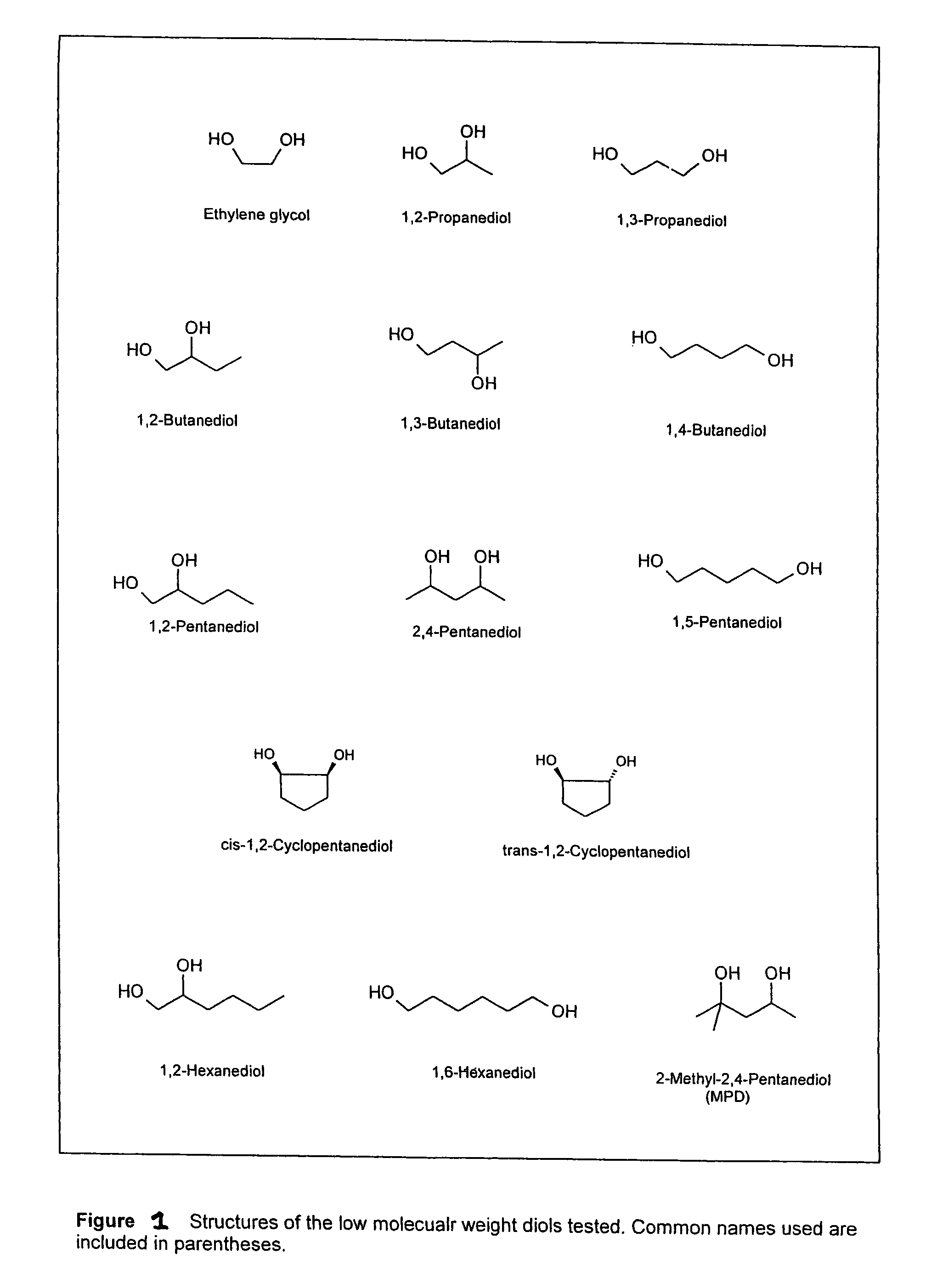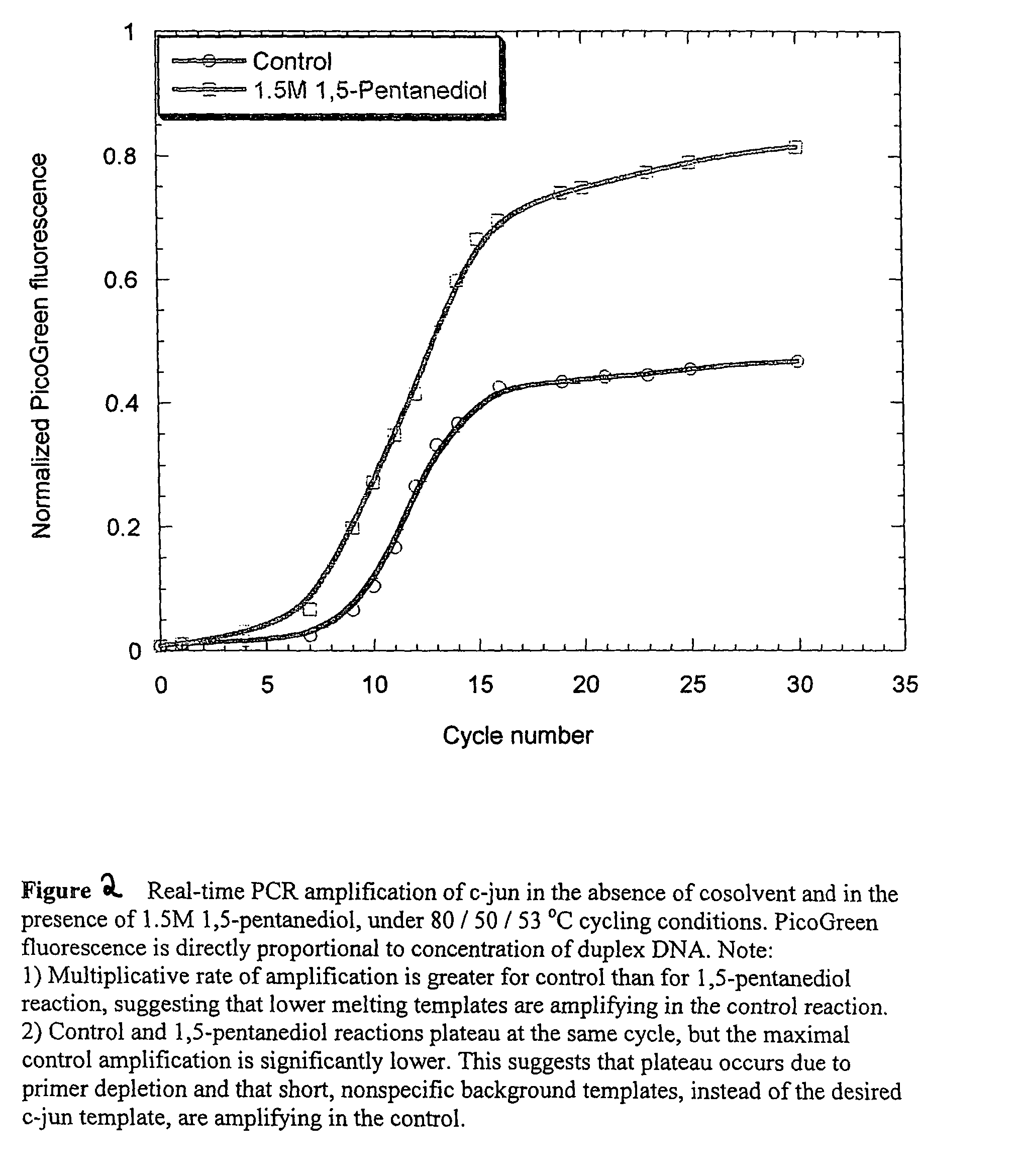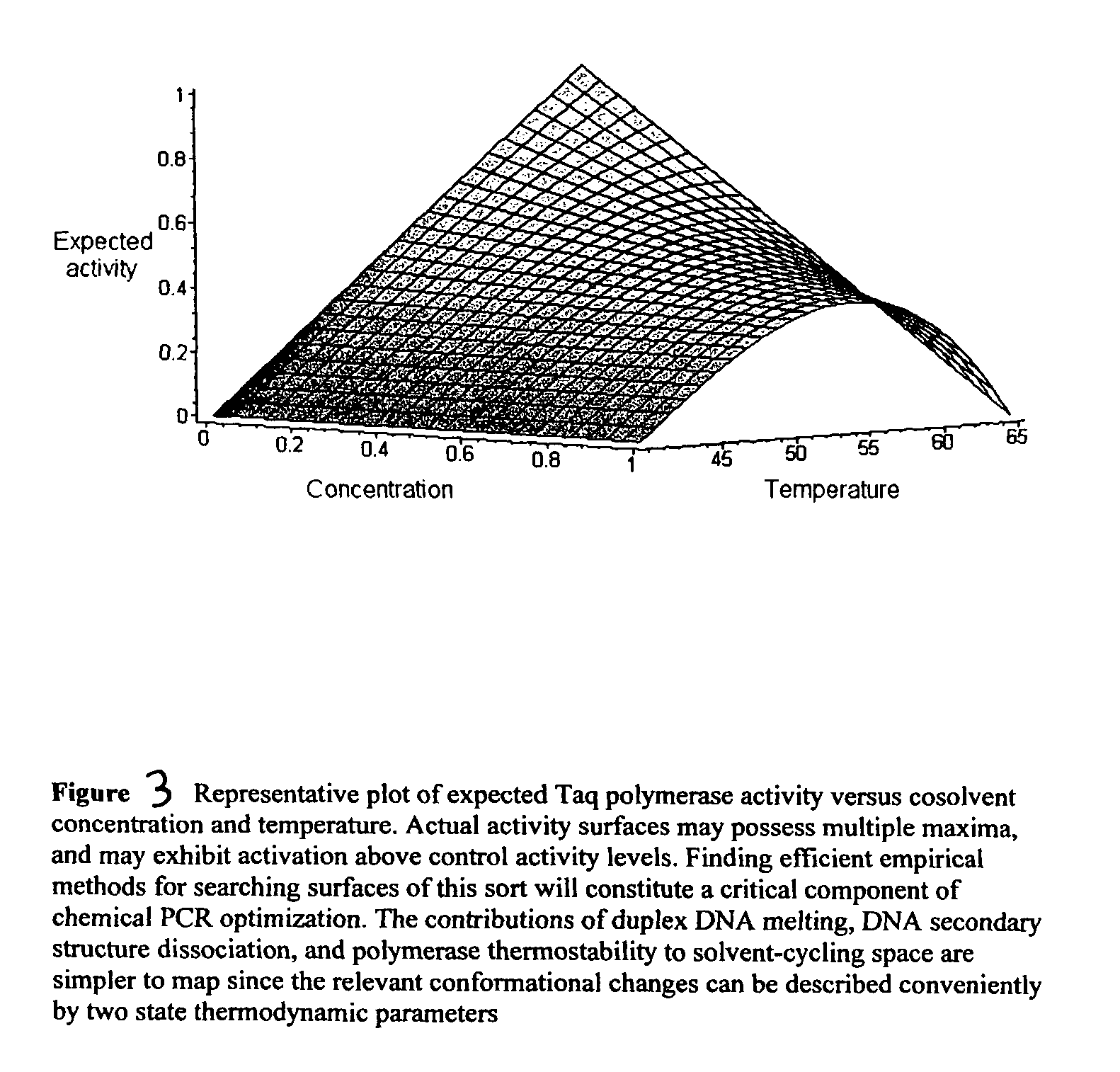Chemical PCR: Compositions for enhancing polynucleotide amplification reactions
a polynucleotide amplification and composition technology, applied in the field of molecular biology, can solve the problems of low yield, low yield, and difficulty in standard procedures, and achieve the effect of enhancing the polynucleotide amplification reaction and enhancing the polynucleotide amplification
- Summary
- Abstract
- Description
- Claims
- Application Information
AI Technical Summary
Benefits of technology
Problems solved by technology
Method used
Image
Examples
example 1
Enhancement of Polynucleotide Amplification by Low Molecular Weight Diols
[0109]Investigations into the PCR enhancing capabilities of diol cosolvents were carried out in Example 1 and demonstrated the superior effectiveness of diol cosolvents as compared to glycerol in PCR enhancement.
Materials and Methods
[0110]Amplification reactions were carried out under the following general conditions. Those skilled in the art will appreciate, however, that to the extent that the conditions (set forth in this application) required for specific experiments described in this example were inconsistent with the following general conditions, limited exceptions to the following general conditions were made The general conditions were as follows: 10 Mm Tris-HCl (Ph 8.8), 50 Mm KCl, 1.5 Mm MgCl2, 0.01% (w / v) gelatin, 0.2 Um primers, 0.06 ng / ul template, 0.2 Mm each Dntp, 0.04 U / ul Taq polymerase. The templates used were bovine brain N-WASP cDNA (1518 bp), a 996 bp segment of human myeloid leukocyte c-ju...
example 2
Enhancement of Polynucleotide Amplification by Lowering PCR Extension and Denaturation Temperatures in the Presence of Organic Solvents
[0125]Investigations into the PCR enhancing capabilities of lowering PCR extension and denaturation temperatures in the presence of organic solvents were carried out in Example 2 and demonstrated the superior effectiveness of the lower extension and denaturation temperatures in PCR enhancement.
Materials and Methods
[0126]Amplification reactions were carried out under the following general conditions. Those skilled in the art will appreciate, however, that to the extent that the conditions (set forth in this application) required for specific experiments described in this example were inconsistent with the following general conditions, limited exceptions to the following general conditions were made The general conditions were as follows: 10 Mm Tris-HCl (Ph 8.8), 50 Mm KCl, 1.5 Mm MgCl2, 0.01% (w / v) gelatin, 0.2 Um primers, 0.06 ng / ul template, 0.2 Mm ...
example 3
Enhancement of Polynucleotide Amplification with Low Temperature Polymerase Activity Studies
[0138]Investigations into the PCR enhancing capabilities of further lowering PCR extension and denaturation temperatures to temperatures lower than those utilized in Example 2 were carried out in Example 3 and demonstrated the superior effectiveness of the lower extension and denaturation temperatures in PCR enhancement.
Materials and Methods
[0139]Amplification reactions were carried out under the following general conditions. Those skilled in the art will appreciate, however, that to the extent that the conditions (set forth in this application) required for specific experiments described in this example were inconsistent with the following general conditions, limited exceptions to the following general conditions were made The general conditions were as follows: 10 Mm Tris-HCl (Ph 8.8), 50 Mm KCl, 1.5 Mm MgCl2, 0.01% (w / v) gelatin, 0.2 Um primers, 0.06 ng / ul template, 0.2 Mm each Dntp, 0.04 ...
PUM
| Property | Measurement | Unit |
|---|---|---|
| temperature | aaaaa | aaaaa |
| temperature | aaaaa | aaaaa |
| temperature | aaaaa | aaaaa |
Abstract
Description
Claims
Application Information
 Login to View More
Login to View More - R&D
- Intellectual Property
- Life Sciences
- Materials
- Tech Scout
- Unparalleled Data Quality
- Higher Quality Content
- 60% Fewer Hallucinations
Browse by: Latest US Patents, China's latest patents, Technical Efficacy Thesaurus, Application Domain, Technology Topic, Popular Technical Reports.
© 2025 PatSnap. All rights reserved.Legal|Privacy policy|Modern Slavery Act Transparency Statement|Sitemap|About US| Contact US: help@patsnap.com



